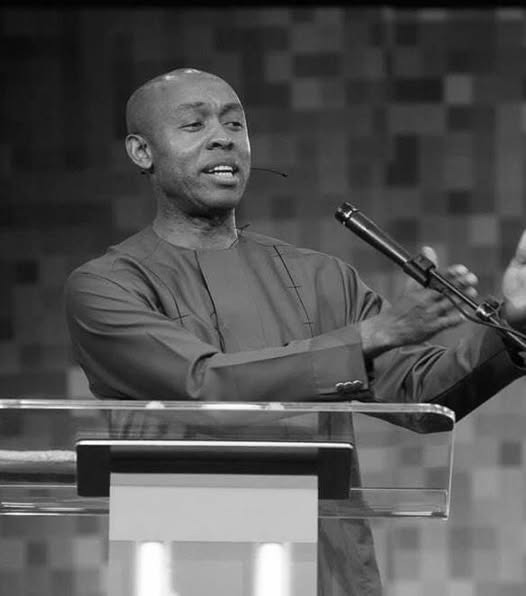The chances are that his name does not ring a bell to most Nigerians. He was not one of those few privileged Nigerians inflicted on 30 million countrymen on prime-time television. Nor was his face a regular in the print media. He was neither a banned politician nor a new-breed aspirant. And he certainly was not born with a silver spoon. Yet for reasons that will shortly become obvious, he richly deserves this unorthodox in memoriam.
I never knew Elechi as a human being! When I first met him on Thursday, 17 January 1991, Elechi was dead. Stone dead!! The meeting took place in the most unusual of places: in the morgue of the Lagos State General Hospital at Broad Street, Lagos, where he was identified as reference no. 5940. And then he had been dead for 30 days — since 19 December 1990!
There were many things we needed to talk about but could not even broach. Dead men after all don’t talk! It was his wounds — the bullet holes that riddled his smashingly handsome frame, and some bruises too — that did the talking. I wanted to ask him how he got to this place that was not ordinarily meant for his generation: and how he got all the wounds he bore. These and several other questions agitated my dazed mind. But the air of absolute stillness about us left me in no doubt that Elechi would not want to be bothered about such affairs. Dead men obviously have no such worries. Despite the pain and agony that must have been his lot during those final hours at the Surulere Police Station on 19 December 1990, Elechi looked so peaceful; so unperturbed.
During our first meeting at the mortuary, Elechi had no name. He was simply marked “unknown—,” an appellation reserved for those unfortunate Nigerians whose population continues to increase at an alarming rate, and who are sent to the hereafter by the policeman’s trigger, in circumstances that are far from wholesome.
Elechi crept into my life on Wednesday, 16 January 1991. On that day, I was informed by his elder brother, Douglas, a criminologist in Texas, U.S.A., how the corpse of Elechi, who uncharacteristically failed to attend the 1990 Christmas festivities in his Ibere Village, now in Abia State, was located after a two-week search in the morgue where I met him.
Since 16 January, Elechi became my client from beyond. I have lost count of the number of un-replied letters I wrote to the police authorities in Lagos State and the Lagos State Attorney-General requesting for the post-mortem report on Elechi. When the silence from these sources became too deafening, I went to the Lagos High Court for its assistance to help unravel the circumstances of Elechi’s death and pave the way for bringing his murderers to book. To date and with 10 court appearances so far, the case is stymied by the apparent unwillingness of the State to subject itself to the judicial machinery. The state agencies sued, including the police authorities and the Federal Attorney-General, have refused to appear in court despite several reminders.
Yet, the court insists that we have to move at the convenience of these unwilling defendants.
Meanwhile, the police authorities in Lagos slammed an order on the morgue at Broad Street restraining it from releasing the corpse to the family for interment. This happened in April 1991. Then in the first week of May 1991, Elechi’s corpse was reported missing from the morgue. He had surreptitiously been removed for possible burial as an “unknown” corpse. Some providential intercession saved the day, thanks to one sympathetic mortuary staff.
Then on August 5, a High Court in Lagos State authorized Elechi’s family to take custody of his corpse for burial. Simultaneously, the court ordered the police authorities to file the autopsy report on Elechi in court. Two months later, on Monday, 7 October, the hospital most reluctantly released Elechi for burial. But the autopsy report has not been filed. Unbelievably, the written claim of the hospital’s doctors is that Elechi died of a laconic hemorrhage.
For some who got to know Elechi in these unfortunate circumstances, life has ceased to be the same again. One of them is a woman: mother of six children. For obvious reasons, her name is not very important now. The important thing is that she saw Elechi in his final moments: gasping and drowning in his own pool of blood, and made the mistake of not keeping quiet. Since then her husband, a police inspector living in the same barracks in which Elechi was murdered, has bundled her out of the house. She has also been declared wanted by the police, accused of stealing and receiving non-existent goods. Between January 1991 and today, she has been arrested on four different occasions by the police in Lagos and has spent 31 days in unjustifiable detention without trial. Her eldest daughter and a nephew who lived with her in the barracks before Elechi died have been arrested twice, detained for 18 days each, and unsuccessfully tried for affray. Today, this woman is in hiding somewhere in this country: for speaking the truth.
Unfortunately, the identity of the policeman who killed Elechi is not in dispute. There were four of them on that operation. The police say they have been investigated and that the case file on them has been forwarded to the office of the Lagos State Director of Public Prosecutions (D.P.P.) for his advice. The D.P.P.’s office tells me that no such file has been received. Who do I believe? In the interim, all but one of these men have been transferred out of town.
Last week he was buried in his birthplace in Abia State. What a morbid way for his family to celebrate a new start.
A lawyer and a teacher, Professor Odinkalu can be reached at chidi.odinkalu@tufts.edu
⁕⁕⁕This Op-Ed was first published in African Concord on October 21, 1991.
